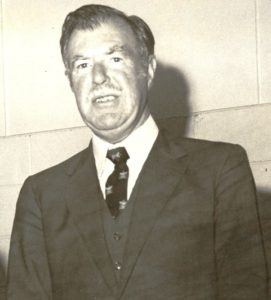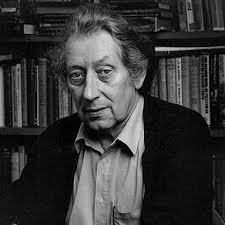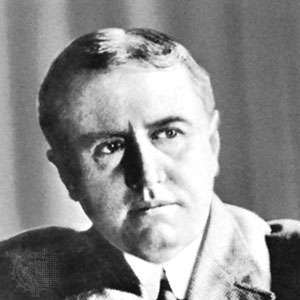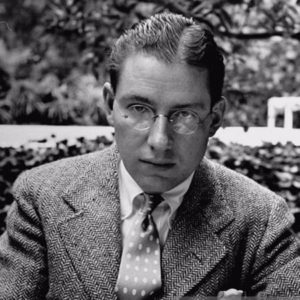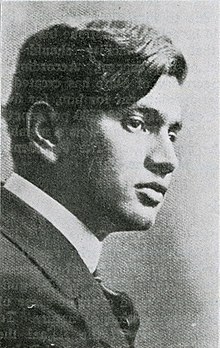We have decided to create the most comprehensive English Summary that will help students with learning and understanding.
Glimpses of the Past Summary in English by S.D. Sawant
Glimpses of the Past Summary in English
It is a picture story. It recalls the story of freedom through pictures. It also explains the idea that led to the first war of Independence in 1857.
At a function in Delhi, Lata Mangeskar sang patriotic song “Aye Mere Waten Ke Logon”. She called upon the Indians to recall with tearful eyes the sacrifices of Indian freedom fighters.
The English East India Company came to India for trade. But with its superior weapons of diplomacy they extended its power in the 18 th century. Indian princes were divided and short-sighted. People in India had no peace due to constant fights among the states of the country. They sought the help of the English merchants to defeat each other. These rivalries helped the Company to defeat and subdue Indian princes one by one.
A far-sighted ruler like the brave Tipu Sultan of Mysore fought the British till he died fighting.
Now Indians reacted to the conquests made by the English Company. Some of them thanked God as well as the British for restoring peace in the country and stopping looting. They said their destiny was linked with the English.
But there were others who felt unhappy. They complained that the white man had killed or dethroned their kings. No doubt some kings were bad, but after all they were Indians. Under the white rulers, they had become slaves.
Some religious leaders supported the social evils such as untouchability and child marriage. They forbade crossing the seas and going abroad. A few said that women were to blame for all the misery. The truth was that Indians had lost self-respect. The white hated and disbelieved them.
The English were merchants first. Their aim was to make quick profits. They imposed heavy taxes on the farmers. They sent many farmers to jail for failing to pay their tax arrears. They destroyed Indian cottage industries also in order to sell goods manufactured in England. They exempted all goods imported from England from duties. Thus they ruined Indian artisans and their business.
Raja Ram Mohan Roy, a learned social reformer from Bengal, understood what was wrong with the country. He called upon the people to feel proud of their ancient culture, and get the society rid of silly superstitions. He pointed out that all religions preached the same thing. He understood the importance of science and modem knowledge. He started newspapers but the British stopped them in 1823. He crossed the seas and went to England to see what made the British so powerful. He then adopted the middle path.
He agreed to accept the British as rulers but they must remember the responsibilities of rulers towards their subjects.
From 1765 to 1835, the British continued to oppress Indians. In 1818, they passed a resolution under which an Indian could be jailed without trial. The British officers in India drew huge salaries and also made fortunes in private business. As a result, Britain prospered while Indian industries began to decline. Governor-General Bentink wrote back’s home about the starving cotton weavers.
Indians were taught Persian and Sanskrit. In 1835, an English man named Macaulay recommended the teaching of English in India. English education produced I clerks who were given petty jobs. But it also produced a set of intellectuals. They said that Indians should learn English. They should improve their economic conditions and then convey their grievances to the British Parliament.
By 1856, the British had conquered the whole of India. They cared little about the welfare of Indians. Indian kings and rulers became puppets of the British. The people had lost all jobs and lands. They felt the need to drive the white man out. The Santhals revolted in 1855 and killed many Europeans. The Indian soldiers in the British army were also dissatisfield because they were poorly paid. They were sent to other countries. Sepoy Mangal Pandey attacked the white and was hanged. Thousands of other sepoys were also put in chains. The Brahmin soldiers came to know that their bullets had fat of cows and pigs. The message was sent from village to village to get ready for the revolt.
The sepoys marched to Delhi and accepted Emperor Bahadur Shah as their head.
The rebellion spread. Many landlords also joined it. Begum Hazrat Mahal of Lucknow and Azimulla Khan, Peshwa Nana Sahib, Kunwar Singh of Bihar pitched battles all over north India. So did the people in Bareilly, Kanpur and Allahabad. This marked the beginning of India’s first war of Independence.
Glimpses of the Past Summary in Hindi
यह एक चित्रकथा है। यह स्वतन्त्रता संग्राम की गाथा को चित्रों द्वारा दर्शाता है। इसमें यह वर्णन किया गया है कि 1857 के पहले स्वतन्त्रता संग्राम किन कारणों से शुरु हुआ था।
दिल्ली के एक समारोह में लता मंगेस्कर ने एक देशभक्ति का गीत, ऐ मेरे वतन के लोगों गाया था। उसने भारत के लोगों को आंसू भरी आंखों से भारतीय स्वतंत्रता सेनानियों के प्राणों की आहुतियों को याद करने का आग्रह किया।
अंग्रेजी ईस्ट इण्डिया कम्पनी भारत में व्यापार के सिलसिले से आई। पर अपने उत्तम एवं कूटनीतिक कौशल द्वारा उसने 18वीं शताब्दी में अपना प्रभुत्व फैला लिया। भारतीय राजा आपस में विभाजित तथा संकीर्ण दृष्टिकोण वाले थे। लोगों को राज्यों के बीच निरन्तर होने वाली लड़ाइयों के कारण शांति नहीं मिल पा रही थी। उन्होंने अंग्रेज सौदागरों की मदद माँगी ताकि एक दूसरे को नीचा दिखा सकें। आपसी प्रतिद्वन्द्विता ने कम्पनी का रास्ता साफ कर दिया। एक-एक करके उसने भारतीय नवाबों पर अपना अधिकार जमा लिया।
दूरदृष्टि वाला एक वीर मैसूर का शासक टीपू सुल्तान अंग्रेजों से युद्ध करते हुए शहीद हो गया।
भारतीयों ने अब अंग्रेज कम्पनी की विजय यात्रा को स्वीकार कर लिया। कुछेक ने तो परमात्मा तथा कम्पनी दोनों का आभार व्यक्त किया कि उन्होंने ठगों की लूटपाट रोककर देश में शांति स्थापित की। वे कहने लगे की भारत कि किस्मत अंग्रेजों के साथ जुड़ी है।
पर कुछ अन्य व्यक्ति दुखी हो गये। उन्होंने शिकायत की कि गोरे लोग या तो राजाओं की हत्या कर रहे हैं अथवा उनसे उनकी राजसत्ता छीन रहे हैं। भारतीय गोरों के दास बनते गये।
कुछ धार्मिक नेताओं ने सामाजिक बुराइयों जैसे छुआछूत तथा बाल विवाह का समर्थन किया। उन्होंने समुद्री यात्रा करके देश से बाहर जाने को मना कर दिया। कुछेक बोले कि सभी कष्टों की जड़ महिलायें हैं। सच यह था कि भारतीय आत्मसम्मान खो चुके थे। अंग्रेज उन पर अविश्वास करते थे तथा उनसे घृणा करते थे।
अंग्रेज मूलरुप से सौदागर थे। उनका लक्ष्य था तेजी से धन कमाना। उन्होंने किसानों पर भारी कर लगा दिए तथा कर न देने पर उन्हें जेल भेज देते थे। उन्होंने भारतीय कुटीर उद्योगों को खत्म कर दिया ताकि वे इंग्लैण्ड में निर्मित सामान भारत को निर्यात करते रहें। उन्होंने इंग्लैण्ड से आयात किये सभी प्रकार की चीजों को कर मुक्त कर दिया। इस प्रकार उन्होंने भारतीय कारीगरों एवं व्यापार को नष्ट कर दिया।
राजा राम मोहन राय बंगाल के एक विद्वान एवं समाज सुधारक थे। उन्होंने समझ लिया कि देश में क्या कमी है। उन्होंने लोगें से कहा कि अपनी पुरानी संस्कृति पर गर्व करो तथा समाज को मूर्खतापूर्ण अंधविश्वासों से छुटकारा दिलाओ। उन्होंने बताया कि सभी धर्म एक ही शिक्षा देते हैं। उन्होने विज्ञान एवं आधुनिक ज्ञान के महत्त्व को पहचाना। उन्होंने अखबार प्रकाशन शुरु किया पर अंग्रेजों ने 1823 में उन्हें बंद कर दिया। वह समुद्र पार करके इंग्लैण्ड गये, यह पता लगाने कि किस कारण अंग्रेज इनसे बलशाली हो गये। उन्होनें फिर मध्यमार्ग अपनाया। उन्होने अंग्रेजों को शासक के रुप में स्वीकार कर लिया। पर उन्हें यह बताया कि उन्हें याद रखना चाहिए कि एक शासक का अपनी प्रजा के प्रति क्या उत्तरदायित्व होता है।
1765 से 1835 तक अंग्रेज भारतीयों पर अत्याचार करते रहे। 1818 में उन्होंने एक प्रस्ताव पारित किया जिसके अनुसार वे किसी भी भारतीय को बिना मुकदमे के जेल भेज सकते थे। भारत में अंग्रेज अफसरों को ज्यादा वेतन मिलता था तथा वे अपने निजी व्यवसाय द्वारा भी धन कमाते थे। अंग्रेज समृद्ध होते गये पर भारतीय उद्योग बन्द होने लगे। गवर्नर जनरल बेन्टिक ने इंग्लैण्ड लिखकर भेजा कि भारतीय कपड़ा उद्योग में लगे कारीगर भूख से मर रहे हैं।
भारतीयों को फारसी तथा संस्कृत पढायी जाती थी। 1835 में मैकाले नामक व्यक्ति ने अंग्रेजी शिक्षा की सिफारिश की। अंग्रेजी शिक्षा ऐसे क्लर्क बनाने लगी जिन्हें छोटी-छोटी नौकरियाँ मिल जाती थीं। पर अंग्रेजी शिक्षा ने बुद्धिजीवियों को भी पैदा किया जिन्होंने कहा कि भारतीयों को अंग्रेजी पढ़ना चाहिये, जिससे वे अपने आर्थिक स्थिति तथा शिकायतों को ब्रिटिश संसद में भेज सकें।
1856 तक अंग्रेजों ने पूरे भारत को अपने अधीन कर लिया था। उन्हें भारतीयों की कुशलता की तो चिन्ता थी ही नहीं। भारतीय राजा और शासक उनके हाथ की कठपुतली बन गये थे। लोगों से उनके काम, धाम और उनकी भूमि-सब कुछ छिन गई थी। उन्हें लगा कि अंग्रेजों को भारत से खदेड़ना जरुरी है। संथालियों ने 1855 में विद्रोह कर दिया और बहुत से यूरोपियन लोगों की हत्या कर दी। अंग्रेजी सेना में जो भारतीय सैनिक थे, उनमें भी असंतोष पनप रहा था क्योंकि उनको वेतन कम मिलता था। उन्हें देश के बाहर भेज दिया जाता था। सिपाही मंगल पाण्डे ने गोरे अफसर पर हमला कर दिया जिससे उसे फाँसी पर लटका दिया गया।
हजारों अन्य सिपाहियों को भी जंजीर से बाँध दिया गया। कुछ ब्राह्मण सैनिकों को पता चल गया कि उनकी गोलियों में गायों तथा सुअरों की चर्बी लगी है। विद्रोह के लिये तैयार रहने हेतु हर गांव में संदेश भेज दिया गया। मेरठ में हिंसात्मक कार्यवाई शुरु हो गई। सिपाही दिल्ली की ओर कूच कर गये तथा सम्राट बहादुर शाह को अपना नेता मान लिया।
विद्रोह फैलता गया। अनेक जमींदार भी इसमें शामिल हो गये। लखनऊ की बेगम हजरत महल, अजीमुल्ला खान, पेशवा नाना साहव, बिहार के कुँअर सिंह-सब ने पूरे उत्तरी भारत में अंग्रेजों से डटकर लड़ाई की। बरेली, कानपुर तथा इलाहाबाद में भी लोग भड़क गये। इस प्रकार से भारत का पहला स्वतंत्रता संग्राम शुरु हो गया।
